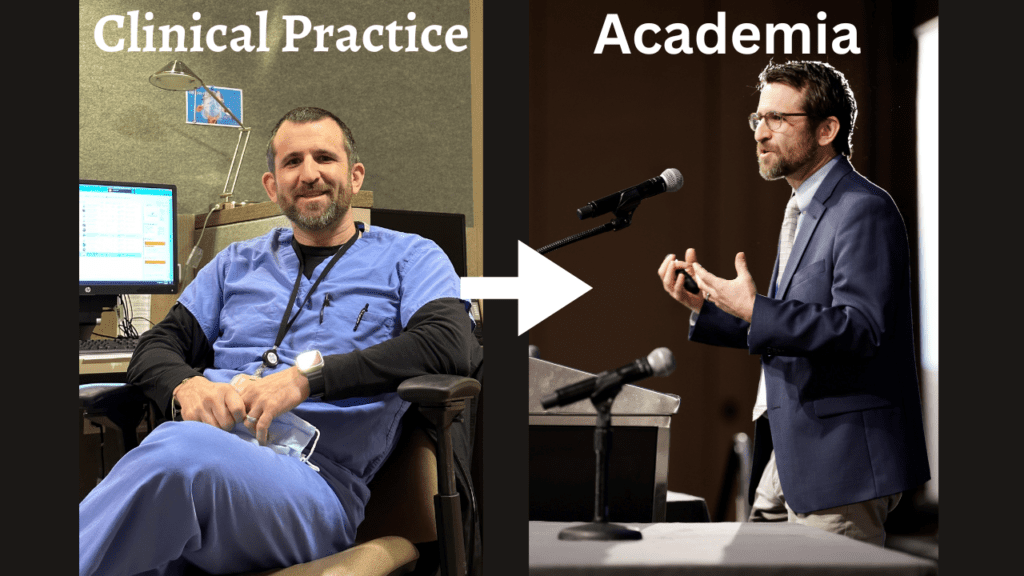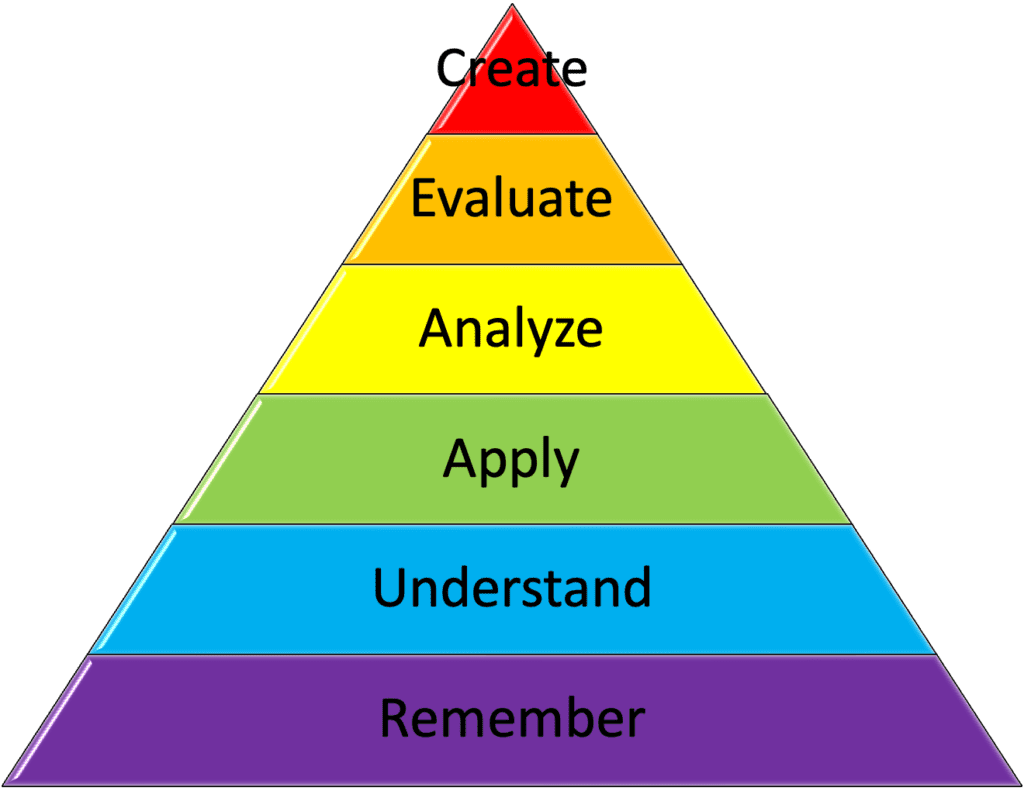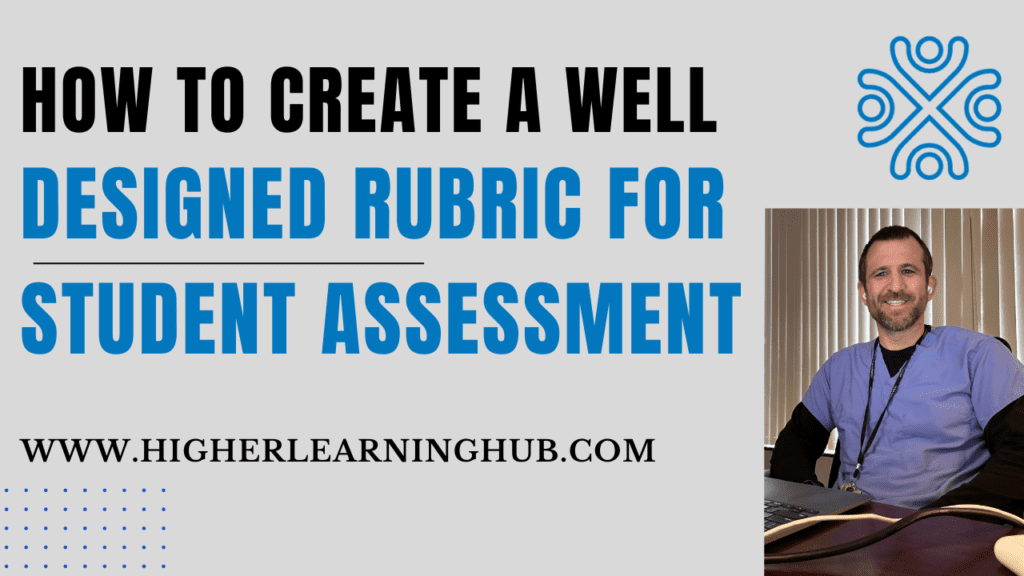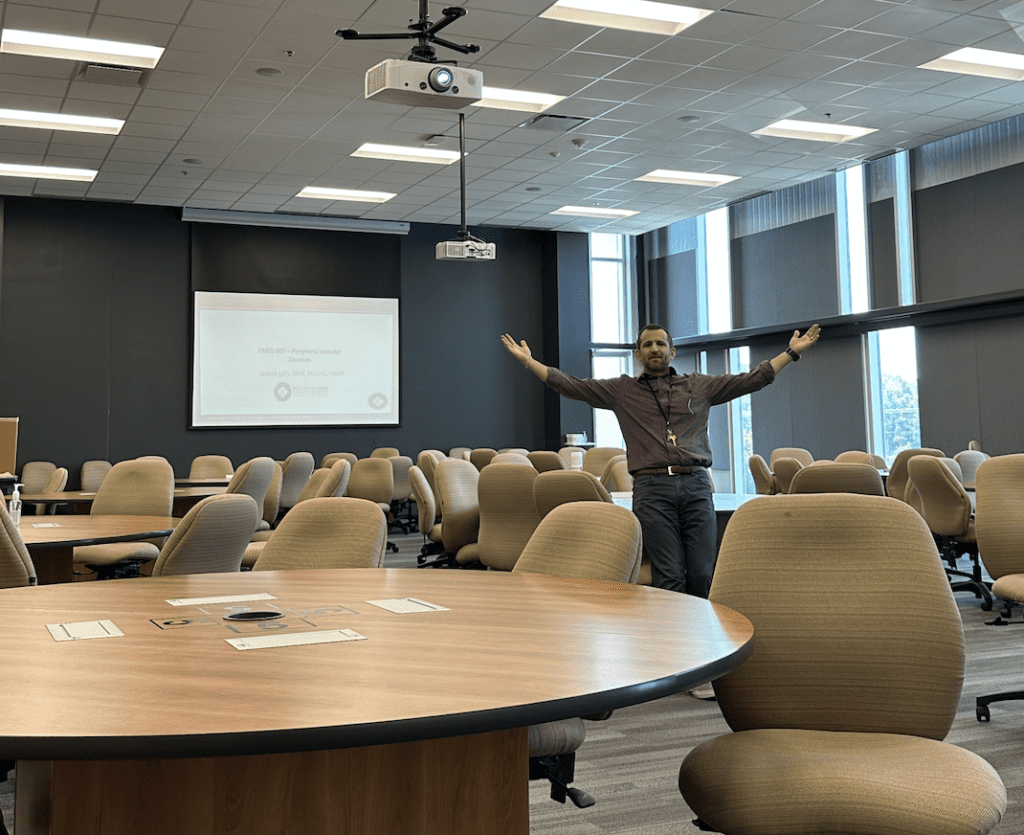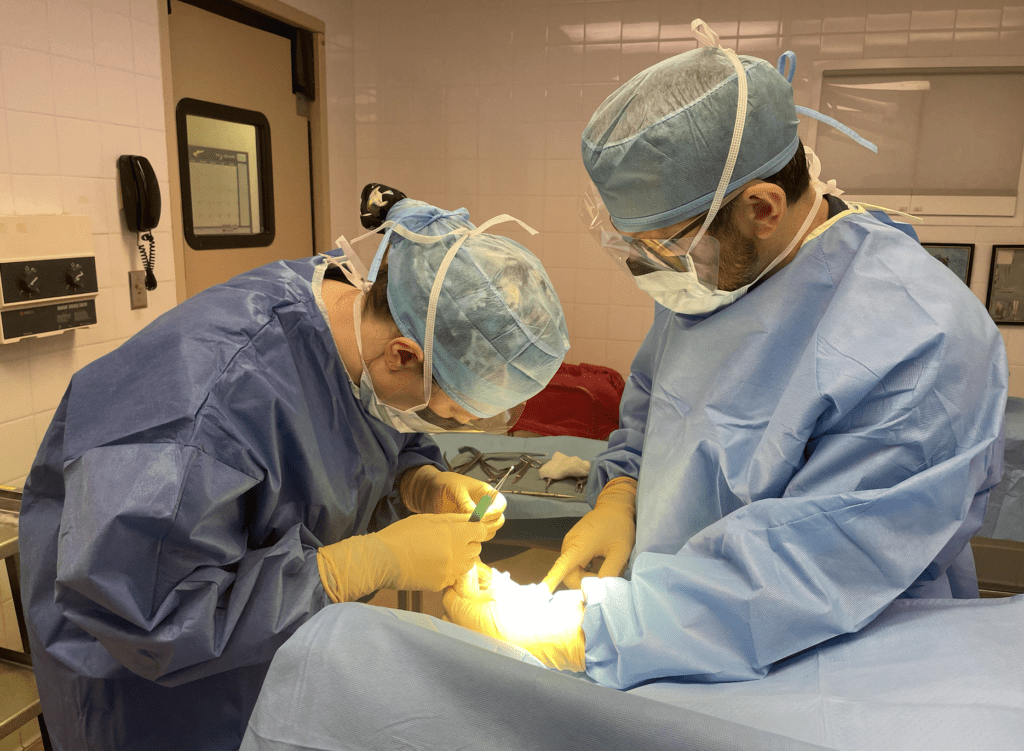Authored by Dr. Leland Jaffe, Associate Dean, and Professor; Published on February 8, 2024
Embarking on the journey from a bustling clinical practice to the dynamic world of academia is a significant leap that promises both challenges and rewards. In this blog post, we’ll explore the process of transitioning from clinical practice to academia, offering insights, tips, and personal reflections to guide those navigating this exciting career path. When I decided to take the next step and transition to an academic role, I knew what my job description would entail, but I certainly didn’t have the tools yet needed to succeed in the academic world. I hope that this blog, and specifically this post, provides you with the tools to successfully take the next step into academia.
The Decision to Transition to Academia
The decision to transition from clinical practice to academia is often rooted in a profound desire to extend one’s impact beyond individual patient care. It represents a conscientious choice to contribute to the broader landscape of healthcare by shaping the next generation of practitioners. For many healthcare professionals, the allure of academia lies in the opportunity to share accumulated knowledge, experiences, and insights with aspiring minds, fostering a new generation of skilled and compassionate professionals.
Reasons To Make This Career Path Shift
It’s a shift driven by a passion for education, a commitment to advancing the field through research and scholarship, and a recognition of the transformative power of mentorship. While the decision entails leaving the immediacy of patient care, it opens doors to influencing healthcare on a systemic level, creating a lasting legacy that transcends individual cases and resonates throughout the academic community. When deciding if an academic career was the best option for my professional life, I had to answer the question of whether I was running away from private practice, or running toward a new career as a faculty member. For me, the answer was simple – academic medicine was the right choice for me!
Preparing for the Transition
Preparing to transition from clinical practice to academia requires a deliberate and strategic approach. This pivotal shift involves not only a change in the professional setting but also a broadening skill set and a deepening commitment to education and scholarly activities. Individuals embarking on this journey should meticulously assess their motivations, recognizing the unique challenges and rewards that come with the academic sphere. It necessitates a commitment to continuous learning, the acquisition of effective teaching methodologies, and an understanding of the academic landscape. Developing a robust foundation includes honing communication skills, embracing adaptability, and cultivating a passion for lifelong learning. By conscientiously building the necessary competencies and mindset, healthcare professionals can navigate the transition seamlessly, ensuring a purposeful and successful integration into the world of academia.
Building Your Academic Toolbox
Becoming more knowledgeable about the world of academia is a transformative journey marked by intellectual curiosity and a commitment to continuous learning and career development. To navigate the complexities of academia effectively, individuals must engage in a multifaceted approach that includes staying abreast of current research trends, understanding the nuances of academic life, and cultivating a deep appreciation for interdisciplinary perspectives.
It involves immersing oneself in scholarly literature, attending conferences, and actively participating in academic discussions within and beyond one’s field of expertise. Additionally, establishing mentorship relationships with experienced academics provides invaluable insights and guidance. Embracing the diverse facets of academia requires an openness to new ideas and a thirst for knowledge of your new role.
How I Successfully Develop the Skillset Needed for Academia
When I had my career transition in 2015 from clinical practice to academia, I had little to no academic experience. My academic experience to that point was educating residents in the operating room. I quickly learned that to find career success in the academic world, I needed to learn skills such as writing syllabi, learning objectives, and item writing, among other demands of my new faculty position. To ensure a successful transition to academia, I initially sought guidance from more experienced faculty as well as my department chair. I attended as many faculty development programs as I could. I tried to gain as much direct experience with the students as possible. Working alongside more seasoned faculty initially was a great opportunity to advance my academic knowledge.
Balancing Teaching and Clinical Responsibilities
Balancing teaching and clinical responsibilities as a faculty member requires adept time management, flexibility, and a deep commitment to both spheres. On one hand, there is the responsibility to impart knowledge, inspire graduate students, and foster a dynamic learning environment. On the other, there is the imperative to maintain clinical proficiency, stay current with advancements in healthcare, and provide exemplary patient care.
The Importance of Time Management
This equilibrium demands strategic planning, where educators must allocate time efficiently between preparing lectures, engaging with students, and fulfilling administrative duties, all while ensuring a seamless integration of clinical expertise into the classroom. Establishing clear priorities, leveraging technology for streamlined communication, and fostering effective collaborations with colleagues can help strike the right balance. It is in this intricate interplay between teaching and clinical practice that faculty members not only enhance their students’ educational experience but also contribute significantly to the advancement of healthcare through the application of real-world expertise.
Embracing Academic Research and Scholarly Activities
Engaging in academic research not only advances the understanding of specific subject matters but also enriches the overall academic experience for both educators and students alike. Scholarly activities, including writing publications, attending conferences, and collaborating with peers, provide avenues for continuous intellectual growth. Through these endeavors, faculty members not only stay at the forefront of their respective fields but also contribute to the collective wisdom of academia. Embracing research is not just about producing scholarly outputs; it is a mindset that fosters critical thinking, intellectual curiosity, and a commitment to making meaningful contributions to the academic community and beyond.
Cultivating Mentorship and Networking
Mentorship in academia is a cornerstone of professional development, providing a scaffold of support and guidance for new faculty making the career change to higher education. Experienced mentors play a pivotal role in fostering the growth and success of their mentees by offering valuable insights, sharing personal experiences, and providing constructive feedback. Mentorship extends beyond the transfer of knowledge; it encompasses the cultivation of essential skills, the navigation of institutional nuances, and the encouragement of independent thinking.
The Mentor-Mentee Relationship
The mentor-mentee relationship in academia is characterized by mutual respect and a commitment to the mentee’s holistic development, both personally and professionally. This symbiotic connection is crucial for helping individuals build confidence, navigate challenges, and achieve their academic aspirations. As mentors share their expertise and passion for academia, they contribute to the continuity of knowledge and the cultivation of the next generation of scholars and educators.


Using Other Resources Such as Social Media and Blogs to Gain Knowledge of Academia
A motivation behind the creation of this blog is to assist others in making this transition to academia as well as sharing best practices for the betterment of student education.
Blog posts tailored to assist those making the transition to academia provide a wealth of benefits for individuals navigating this significant career shift. Firstly, it serves as a valuable repository of firsthand experiences, offering insights and personal narratives that can help demystify the often intricate process of transitioning from other professional domains to academia.
Our Facebook Group – Higher Learning Hub
Additionally, such a blog or social media site can offer practical advice, actionable tips, and strategic guidance, serving as a virtual mentorship platform for those seeking direction in their academic journey. It provides a supportive community where individuals can engage in discussions, share concerns, and learn from each other’s successes and challenges. I have created a Facebook Group entitled “Higher Learning Hub” as a platform for educators to share ideas and learn from each others’ experiences.
Sharing Best Practices in Higher Education
Moreover, the blog can act as a dynamic resource hub, creating relevant information on teaching methodologies, research strategies, and the broader trends shaping the landscape of higher education. By fostering a sense of community and providing accessible, relevant information, a higher education-focused blog or social media group becomes an indispensable tool in empowering individuals during their transition to academia, ultimately contributing to their professional success and satisfaction in the academic realm. Lastly, this group can assist others in a job search and connect a potential faculty member with a prospective employer.
Navigating the Transition From Clinical Practice To Academia: Conclusion
The transition from clinical practice to academia is a transformative journey filled with challenges and opportunities. By preparing thoughtfully, developing new skills, embracing hard work, and taking on the change with an open mind, healthcare professionals can successfully navigate this transition to the academic setting and make meaningful contributions to the education and development of future healthcare leaders.

